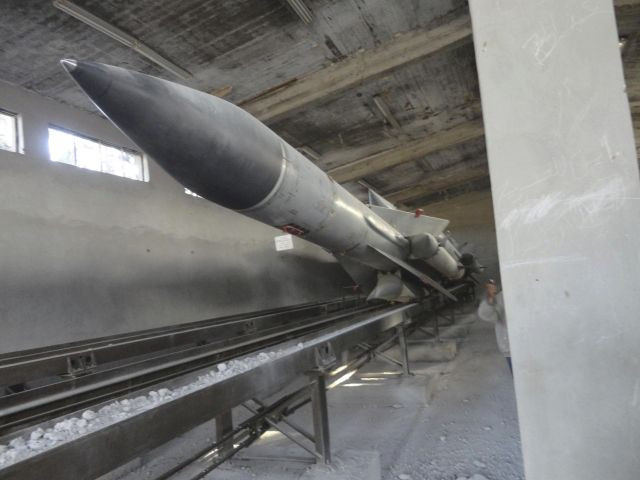Syrian Regime Forces Fired Scud Missiles At Rebels, US Official Says

Syrian President Bashar al-Assad’s forces have begun to fire Scud ballistic missiles at the rebels, while the regime’s chemical weapons stockpile is ready to be deployed at “a moment’s notice,” a U.S. official has said.
U.S. military satellites recently picked up and confirmed the infrared signature of the four short-range Scud missiles, which were launched from the Damascus area into northern Syria, CNN reported Wednesday quoting an official who spoke on condition of anonymity.
The missiles “came close” to landing on the Turkish side of the border, according to the official.
A NATO official, who declined to be named, confirmed the use of Scuds.
"Allied intelligence, surveillance and reconnaissance assets have detected the launch of a number of unguided, short-range ballistic missiles inside Syria this week," a NATO official in Brussels was quoted as saying by Reuters. "Trajectory and distance travelled indicate they were Scud-type missiles."
NATO is preparing to send a Patriot missile defense system to neighboring Turkey after a request made at a meeting in Brussels last week, CNN has reported.
U.S. House Intelligence Committee Chairman Mike Rogers on Wednesday expressed concern that the Syrian regime appeared closer to deploying chemical weapons.
"I believe that they have put elements of their chemical weapons program in a condition in which they could be used at a moment's notice, which is very different from before," Rogers told Reuters in an interview.
"And some notion that they have promised not to use them, I don't think the international community ... should take that on face value," he said. "This is a regime that's getting more desperate by the day. They have affirmatively put elements of their chemical weapon program in a position for use, that is something that we should all be concerned about."
There were reports last week that the U.S. and its allies were weighing a range of military options after U.S. intelligence reports suggested that the Syrian regime might be gearing up to deploy its stockpile of chemical and biological weapons in a last-ditch effort at survival.
The options currently being discussed range from aerial strikes to limited raids by ground forces to secure the stockpiles, the Associated Press has reported citing a U.S. government official and a former official, both speaking on condition of anonymity.
Syria might have begun processing the chemicals that could be used to make the deadly sarin gas, another U.S. official told the AFP last Monday.
Washington on Tuesday formally recognized the recently formed coalition of Syrian rebels as the “legitimate representative” of the people, in a departure from the earlier U.S. stance that the coalition needed to demonstrate its influence on the ground before being granted recognition.
"We've made a decision that the Syrian Opposition Coalition is now inclusive enough, is reflective and representative enough of the Syrian population that we consider them the legitimate representative of the Syrian people in opposition to the Assad regime," President Barack Obama said during an interview with ABC News.
"It's a big step," Obama said of the decision.
The U.S. recognition came ahead of Wednesday’s meeting of the high-level representatives from nations in the Friends of Syria group in Morocco, the first since the formation of the Syrian opposition coalition.
The National Coalition for Syrian Revolutionary and Opposition Forces, including members within Syria and abroad, was formed Nov. 11 when opposition factions agreed to set up a new and more inclusive 60-member leadership council, at a meeting in Qatar.
The meeting in Marrakech, Morocco, brought together more than 100 countries, led by Western and Arab nations opposed to Assad, but excluding Russia, China and Iran, which have backed Assad or blocked international efforts to end the crisis.
"Participants acknowledge the National Coalition as the legitimate representative of the Syrian people and the umbrella organization under which the Syrian opposition are gathering," said a declaration after the meeting, Reuters reported.
"Bashar al-Assad has lost legitimacy and should stand aside to allow a sustainable political transition," the text said, which warned the regime that "any use of chemical weapons in Syria would be abhorrent and that this would draw a serious response from the international community.”
© Copyright IBTimes 2025. All rights reserved.






















